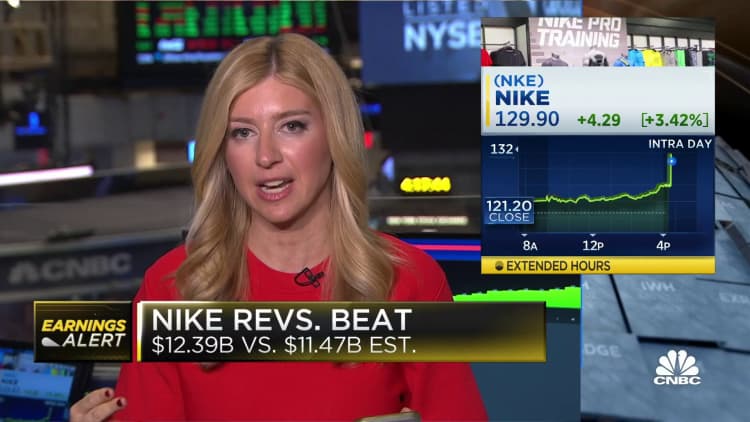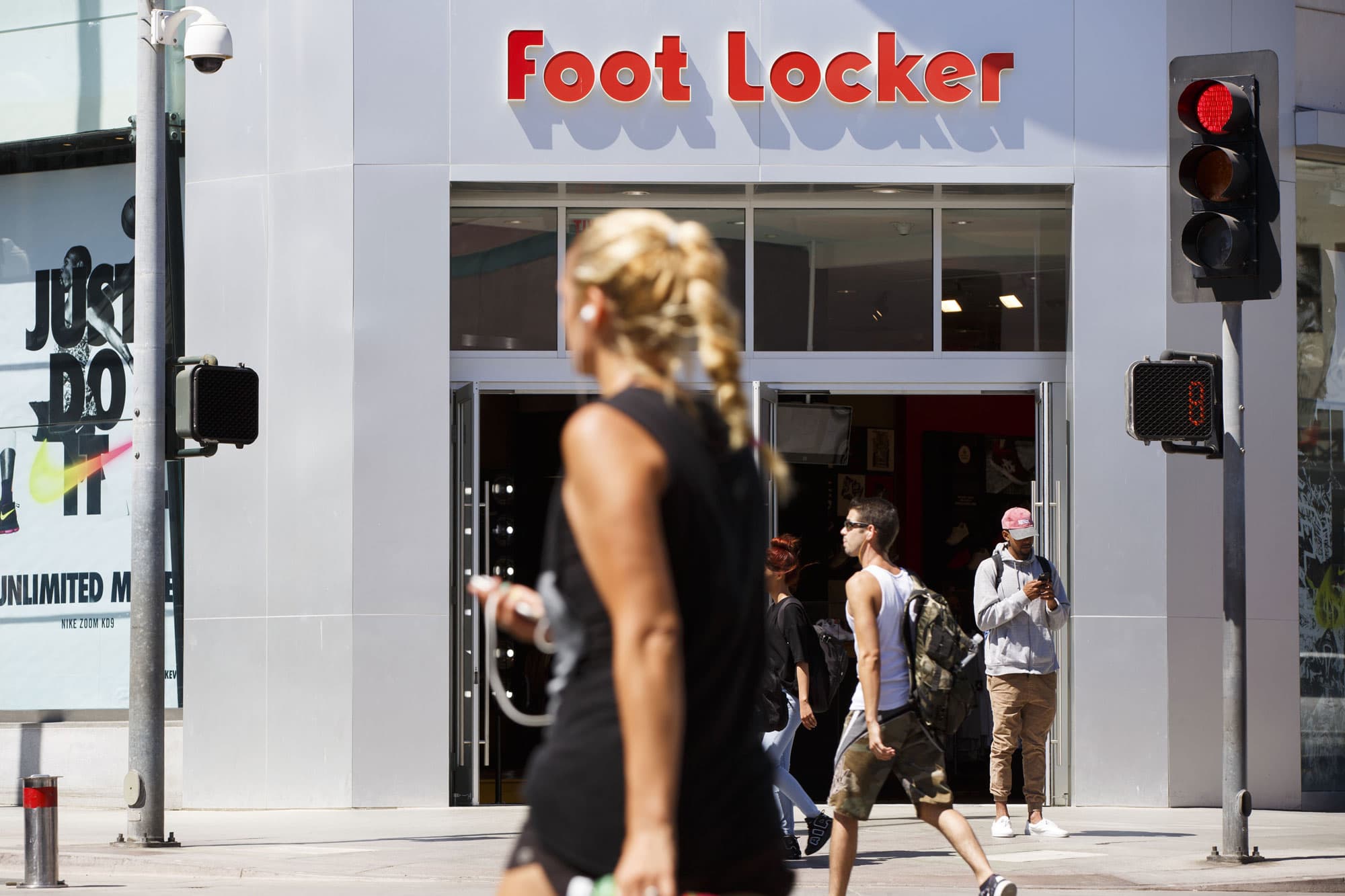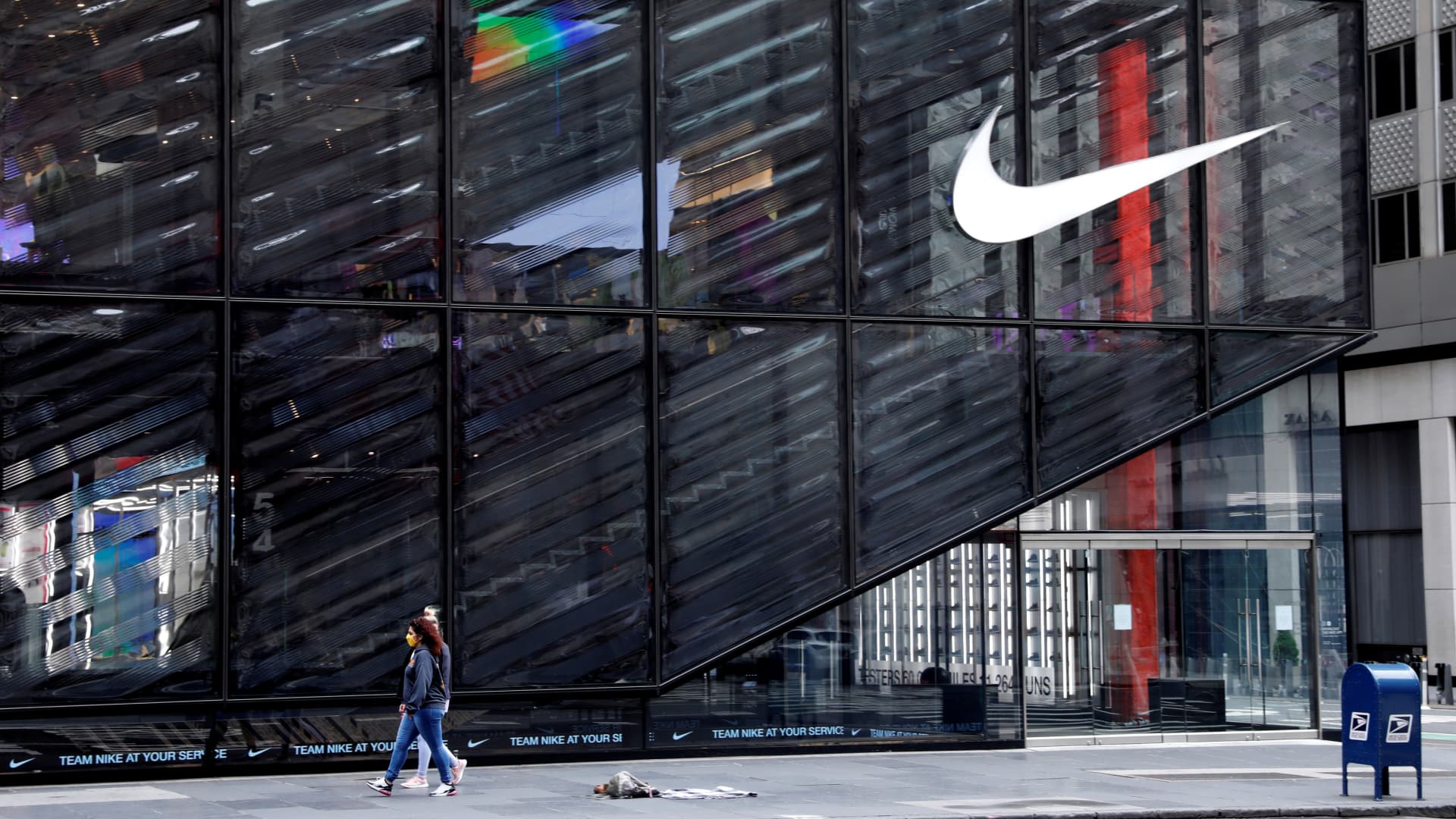Nike’s holiday quarter plagued by bloated inventory, weak China sales

Nike easily beat Wall Street’s estimates for its holiday quarter earnings and revenue, although its bloated inventory continued to weigh on its margins and sales in China fell short of expectations.
Nike, like other retailers, has been in the process of offloading a glut of inventory brought on by supply chain disruptions and shifting consumer demands that’s been weighing on its margins.
related investing news


Gross margin fell to 43.3% for the quarter, a decrease of 3.3 percentage points, due to higher markdowns and promotions the company used to liquidate its inventory.
While Nike CEO John Donahoe told investors last quarter he believes the company is past its inventory peak, the company warned gross margins were expected to take a hit during the holiday quarter.
Inventories were up 16% compared with the year ago period at $8.9 billion, which the company attributed to higher product input costs and elevated freight expenses. During an earnings call with investors Tuesday, executives said they’re “increasingly confident” Nike will exit the fiscal year with healthy inventory levels. They also expect to see “even leaner inventory” than they’d anticipated given sales momentum, the executives added.
Here’s how the sneaker giant performed in its third fiscal quarter of 2023 compared with what Wall Street was anticipating, based on a survey of analysts by Refinitiv:
- Earnings per share: 79 cents vs. 55 cents expected
- Revenue: $12.39 billion vs. $11.47 billion expected
The company’s reported net income for the three-month period that ended Feb. 28 was $1.2 billion, or 79 cents per share, compared with $1.4 billion, or 87 cents per share, a year earlier.
Sales rose to $12.39 billion from $10.87 billion a year earlier.
The road to recovery in China
Nike has been looking for a sales rebound in China, its third-biggest market by revenue, as the region recovers from the Covid pandemic. But those hopes have failed to materialize.
Sales in the region fell 8% during the third quarter to $1.99 billion, despite the end of the country’s zero-Covid policy that had weighed on operations.
Wall Street analysts had anticipated sales in the region of $2.09 billion, according to StreetAccount estimates.
Sales in China have been soft as consumers contended with sweeping lockdowns and rising infections. While some activity has begun to pick up, consumers aren’t back to pre-pandemic shopping levels just yet, according to a Citi research note.
When asked about its outlook on China’s recovery, Nike CEO John Donahoe said the company feels good about its momentum in the region and saw growth “really pick up” in the second month of the quarter after lockdowns ended.
“The fundamentals of this market are good, right? It is a very large market that’s growing. Sport and wellness is a key trend and tailwind there. There’s a desire for innovation and style. And the key to winning in this market is simply put: having great innovation and connecting with Chinese consumers in a locally relevant way,” Donahoe said.
Outside China, Nike saw double-digit sales increases in all of its other markets. Sales in North America were up 27% and in Europe, Middle East and Africa, revenue jumped 17% compared with the year-ago period. In Asia Pacific and Latin America, sales were up 10%.
Citing its strong performance in the quarter, Nike now expects fiscal year revenue to grow by high single digits, compared to mid single digit guidance it gave in the prior quarter. It expects gross margins to decline by 2.5 percentage points, which is the low end of the previous guidance range given and reflects Nike’s ongoing efforts to liquidate excess inventory, along with other costs.
In the next quarter, Nike expects flat to low single digit revenue growth. Finance chief Matthew Friend said the company is taking a “cautious approach” to planning, given uncertainty about consumer confidence and the economy.
“We have managed through cycles like this before and we will be well prepared for the volatility that is in font of us,” he said.
DTC vs wholesale
People wearing protective face masks walk past the closed Nike store on 5th Avenue, during the outbreak of the coronavirus disease (COVID-19), in New York City, May 11, 2020.
Mike Segar | Reuters
For the last several years, Nike has been working to build out its direct-to-consumer sales and has invested heavily in the channel by building out experiential stores, developing its loyalty program and growing its e-commerce sales.
The investments into its DTC channel has come at a cost, but sales have continued to grow. Nike Direct sales were up 17% during the holiday quarter to $5.3 billion and Nike digital sales jumped 20%. Digital sales represented 27% of sales, up from 9% at the end of fiscal 2019.
Selling and administrative expenses were up 15% to $4 billion, the bulk of which was related to wage-related expenses and Nike Direct costs. The company expects full year expenses to be up 10%.
Nike has, over the last two quarters, relied on partnerships with wholesalers to offload inventory. Wholesale revenues were up 12% in the quarter, following 19% growth during the previous quarter.
On Monday, Foot Locker CEO Mary Dillon touted a “renewed” and revitalized relationship with Nike, its biggest brand partner.
However, the company said it reduced its inventory commitments for spring and summer so it can work through its excess inventories. It expects wholesale revenue to “moderate” for the next few quarters.
For all the latest Technology News Click Here

